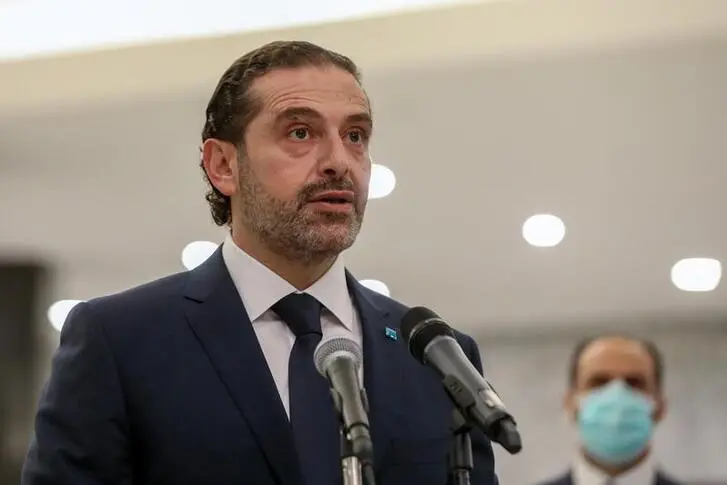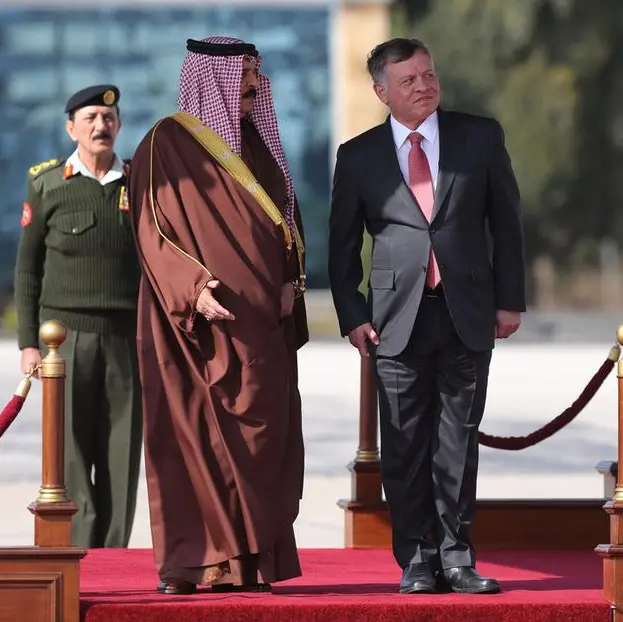PHOTO
Amid speculation that the formation of a new Lebanese government is imminent following last week’s speech by Hezbollah Secretary-General Hassan Nasrallah, in which he said the time has come to form a government, the Lebanese people have little to hope for.
There is no sense of consensus among the key politicians, though there is talk of a government formed of an “army” of 24 ministers that could satisfy the different political parties. One might think that the core of the problem rests on the power-sharing agreement between the different parties, but the issues go much deeper than this. Even if such a government was formed, whether by Prime Minister-designate Saad Hariri or someone else, there is little it can do except to wait for the country to crash. This government, if one is formed, will be the one that has to bear responsibility for Lebanon’s collapse. Will Hariri be ready to take the blame?
US Ambassador to Lebanon Dorothy Shea last month called for the formation of a government to conduct reforms. But the million dollar question remains: “How?” One might wonder why the French initiative failed. The concept of a unity government conducting reforms is an oxymoron. The political class cannot conduct reforms. Any reforms put in place by Lebanon’s politicians would require an audit that would be self-incriminating. If the political class gets to choose the different members of the Cabinet, even if they are not known politicians, we will end up with a dysfunctional government of pseudo-technocrats. It will be nothing but a continuation of the failed government of outgoing Prime Minister Hassan Diab.
The international community is threatening the political elite with sanctions if they don’t conduct reforms; hence it is offering them an impossible solution. The only way to save Lebanon is for the political elite to throw in the towel. But would they ever do that? They face a dilemma: The only way to protect themselves from being incriminated is to remain in power, but if they remain in power they will bear the brunt of the country’s total collapse. They are approaching a dead end. One politician admitted to me that it is only a matter of time until the political class signs its own death warrant.
Parliament Speaker Nabih Berri said the country is like the Titanic — it is destined to sink and everyone will drown. The political elite are feeling the heat. A few weeks ago, MP Elie Ferzli lost it during a TV interview. He is a seasoned politician and for him to lose his nerve is an indicator that the political elite feels cornered. However, they are not the captains that will sink with their ship. They will leave the ship if they are offered a lifeboat. They need a graceful exit in order to leave the ship, otherwise Lebanon faces the Titanic scenario.
Though the country is in a difficult situation, it has not yet totally collapsed. The currency has lost 90 percent of its value, but it still has some value. Despite disturbances and accidents here and there, there is a security apparatus maintaining a certain level of law and order. Government departments still function, even if not efficiently. However, if the country collapses, it will be very difficult to put the pieces back together.
The closest example is Iraq following the invasion of 2003 and the fall of Saddam Hussein. Due to the short-sighted policy of de-Baathification, the US disbanded the Baath Party and indirectly dismantled the state institutions. Almost two decades later, the country is still not back together. Hence Lebanon’s collapse should be avoided at all costs and the politicians should be offered a graceful exit.
The “thawra” (revolution) protest groups, guided by ideals more than realism, want to bring the politicians to justice. This is a dangerous approach, which will lead to a confrontation that might be the final knock to the country. It will also put the Lebanese Armed Forces in a difficult position. So there should be a settlement with the political elite. The international community should pressure them. The most important tool is America’s Global Magnitsky Human Rights Accountability Act, which has taken its toll on Free Patriotic Movement President and former Foreign Minister Gebran Bassil. The US Treasury must know where each politician has accounts and where they get their money from. Washington should also offer the politicians a way to save their skin and make a dignified exit if they agree to return a portion of the funds they have accumulated over the years.
Discussions with the various politicians over their exits and the guarantees they will receive for leaving the scene should start now. In addition to the return of funds, the leading politicians should accept that some of their lieutenants and cronies be put on trial in order to diffuse public anger. This is actually starting to happen already. One influential contractor is starting to sell off his assets as the politician protecting him removed his cover due to the popular pressure that came with the thawra protests.
The people on the streets are getting angrier by the day and are asking for the politicians to be brought to justice, but they should be realistic and present solutions that are executable. Pragmatic solutions that minimize losses should be sought. Though this solution might not seem just, as the people at the helm should be the first to be put on trial, it is the best possible solution as it can save the country from total collapse. In the end, politics is the art of the possible.
- Dr. Dania Koleilat Khatib is a specialist in US-Arab relations with a focus on lobbying. She is co-founder of the Research Center for Cooperation and Peace Building, a Lebanese NGO focused on Track II. She is also an affiliate scholar with the Issam Fares Institute for Public Policy and International Affairs at the American University of Beirut.
Copyright: Arab News © 2021 All rights reserved. Provided by SyndiGate Media Inc. (Syndigate.info).












